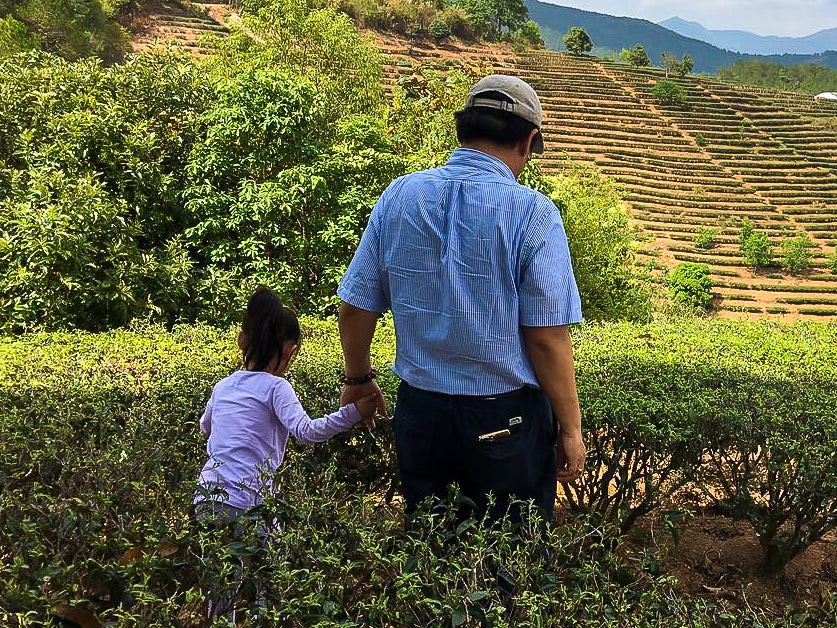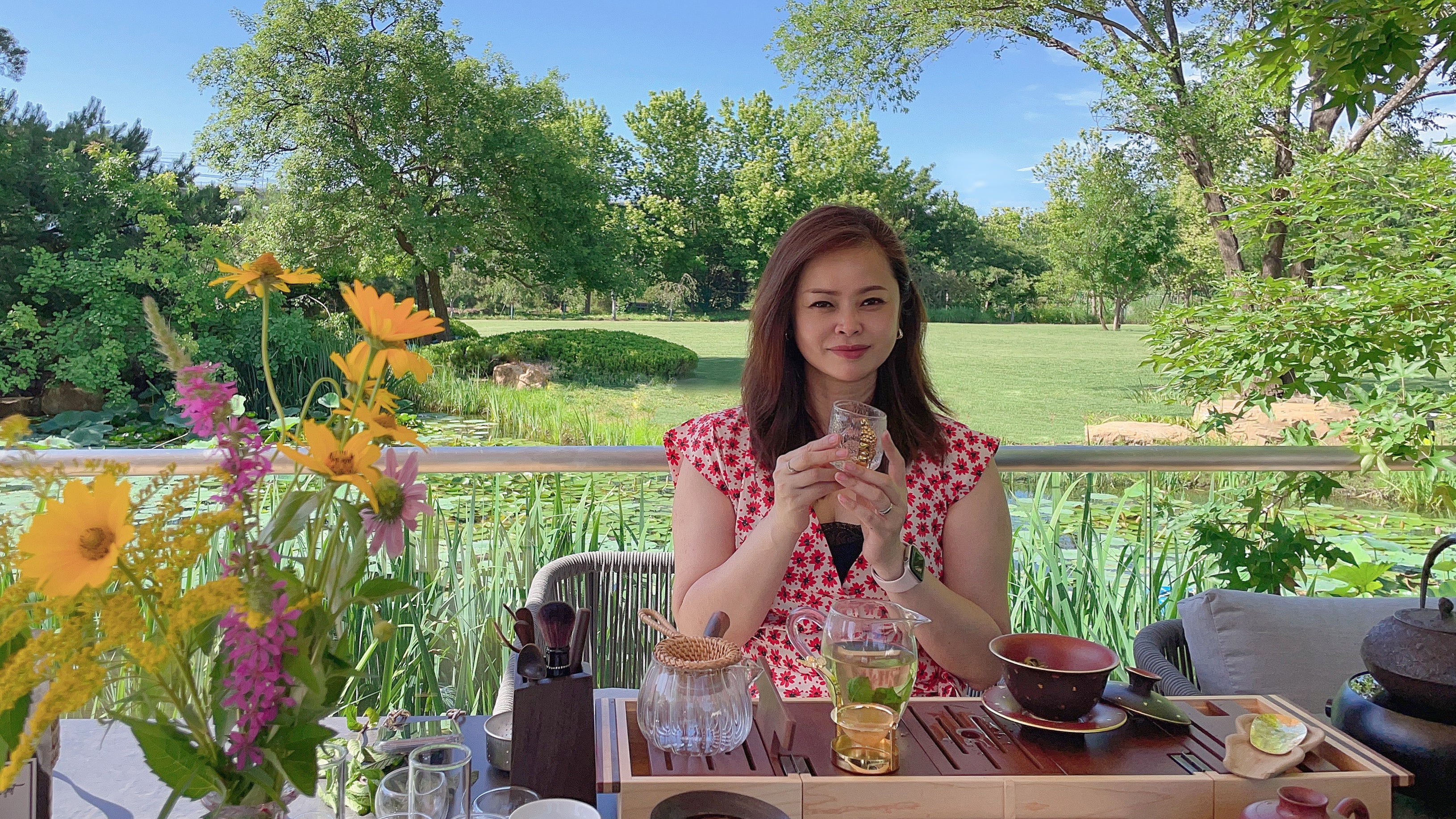關於Jardin Secret
本司Jardin Secret 自豪地為客戶提供真正對健康有益處的高質量有機茶。我們所有的散茶和草本茶都獲得了歐盟有機認證,只為了向我們的客戶展示強而有力的有機產品保證。我們精心挑選來自有機茶園的最優質新鮮茶葉作為原料,由經驗豐富的茶葉大師加工而成的成品茶,確保我們的顧客能夠享用到乾淨,安全和優質的有機茶。
Jardin Secret品牌下的所有散茶都來自高海拔和人手採摘的整片茶葉。這種嚴格的質量要求,讓我們的客戶都能體驗到每種茶的真實風味。
我們Jardin secret 的茶專家們親自前往有機茶園,包括中國和台灣,尋找最上乘的茶葉。憑藉他們的專業知識,對選擇茶葉的嚴格要求及對茶的熱情,本司Jardin Secret 才有十足的信心讓客戶品嚐到最優質的有機茶葉。
Jardin Secret 致力為客戶提供最高品質的有機茶葉和草本茶。
我們對於選擇茶葉的不懈追求以及對客戶的真誠承諾,都體現在我們卓越的產品質量和風味中。
感謝您選擇Jardin Secret。每一杯茶都值得您細細品嚐和體驗。
About the Founder
By Vanessa LEE
Many years ago, after graduating, I gradually became enchanted with the elegant ritual of preparing tea, as someone in my family was engaged in the tea business. Over time, I developed a deep interest in various types of tea. I often sought to understand the different benefits, histories, and various aspects of tea through online resources and books; the knowledge is truly boundless! However, after purchasing a substantial quantity of tea to try at home, I became so engrossed that my daily life became incomplete without tea. Since getting married, after a few years of married life, I frequently find myself with ample free time. Although not wealthy, life has at least been stable and worry-free. As the days pass, a sense of emptiness begins to creep in, making me feel as if I have lost my original self! My parents taught me from a young age the importance of being a kind person and not squandering time, urging me to engage in meaningful pursuits. I found myself thinking, "Operating an organic tea business is indeed a meaningful endeavor! It’s not only aid in people's health but also bring Chinese tea culture to the world!"
Since that time, I have frequently traveled from Thailand back to China to visit various organic tea gardens, which naturally led to exchanges with tea merchants. I have learned a great deal about tea that is not available in the market and have made the acquaintance of many prominent tea traders and friends. I have visited regions such as Guangxi, Guangdong, Guizhou, Yunnan, Fujian, Hangzhou, Anhui, and Wuyi Mountain. My explorations encompassed everything from young tea trees to ancient tea trees; from large-leaf, medium- leaf to small-leaf varieties; considering factors such as planting location, climate, water, soil, cultivation methods, and pest control techniques. Each visit to the tea garden fills me with excitement; dressed in sports shoes and carrying a backpack, I set out early in the morning, listening to the sounds of birds and insects, inhaling the fragrance of flowers and trees while enjoying the beauty of nature as I traverse mountains to reach the tea gardens. Most tea gardens are situated at elevations exceeding a thousand meters—after all, high mountains produce fine tea! After touring the tea garden, it is time to sit in the tea room and savor the teas; I often spend several hours doing so, striving to sample all the teas from the garden. This enables me to compare the flavors and textures of different teas, thereby accumulating valuable experience. As the ancients said: "Reading thousands of books is not as worthwhile as traveling thousands of miles!" Perhaps this embodies the essence of true knowledge.
Subsequently, I resolved to relocate from Thailand back to Hong Kong, and I also obtained certification as an international and Chinese tea specialist . Through this journey, I delved deeper into the techniques of tea brewing, the associated rituals, the history of tea culture, and the concept of “The Way of Tea”. Furthermore, I had the pleasure of meeting a group of like-minded tea specialists,and we frequently exchange knowledge about tea in our daily lives.
What is “The Way of Tea”? “The Way of Tea”, also known as Tea Art, is a traditional cultural art that originated in China, encompassing knowledge and skills related to the preparation, appreciation, utensils, and etiquette of tea.
“The Way of Tea” emphasizes the quality, form, fragrance, and taste of tea, as well as the meticulousness and excellence of tea utensils, etiquette, and environment. It reflects the Eastern cultural pursuit of values such as "harmony," "restraint," and "tranquility." “The Way of Tea” is not merely a culinary culture but also a spiritual pursuit. Advocates of “the Way of Tea” regard tea drinking as a means of self-cultivation and nurturing one's character, striving for inner peace, serenity, and understanding through careful attention to tea leaves, tea water, tea utensils, and etiquette, thus revealing a sense of Zen and profound principles.
The essence of the tea ceremony lies in the principles of etiquette, which require participants to maintain humility, harmony, decorum, complexity, and elegance in the presence of both friends and strangers. This reflects a demeanor and ambiance characteristic of Eastern traditions of propriety.
I strongly agree with Laozi's assertion in the "Tao Te Jing" that "People follows the earth, the earth follows heaven, heaven follows the Dao, and the Dao follows nature." This means that heaven, earth, humanity, and the Dao each occupy an important position in the universe, with these four elements mutually conforming to the natural laws. The Chinese tea ceremony particularly emphasizes the principle of "the Dao follows nature," encompassing the material, behavioral, and spiritual dimensions. "Nature" is the highest criterion of the Dao. In my point of view, enjoying tea in daily life should be a natural, comfortable, and relaxing experience, allowing one to drink as one pleases.
More About Jardin Secret
Download our bilingual fact sheet about Jardin Secret.

我們的目標是能與您共同分享優質有機茶的“情感”...

